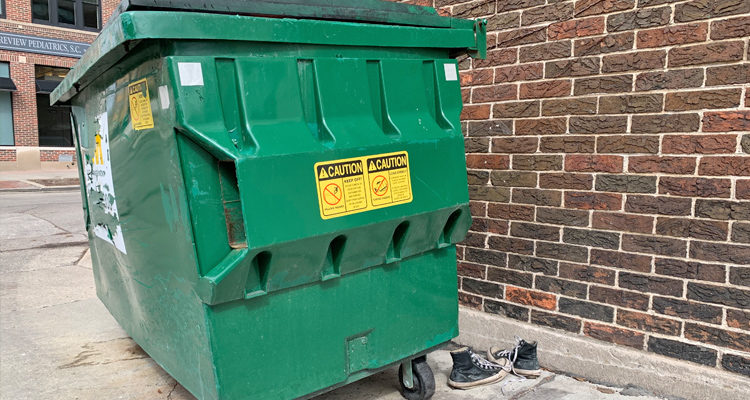Even in the face on the ongoing COVID-19 crisis—a crisis that has turned phrases like “social distancing” into household terms—the City of Milwaukee continues to provide essential services. Garbage is still being collected. Sewer work is still being done. Electrical services are still being provided. And one Milwaukee alderman thinks some sort of bonus or hazard pay for city workers still on the job is a pretty swell idea.
At a hybrid virtual/in-person meeting of the Public Works Committee on Wednesday morning, Commissioner Jeff Polenske detailed just what jobs the Department of Public Works were still providing for the city. “We’re outside picking up garbage on a daily basis,” Polenske said of garbage pickup. “Maintaining and delivering clean water for the public is a huge priority for us,” he said of water and sewer services. Electrical workers continue to “contain larger-scale outages” and work on various construction sites, he said.
“Those operations are essential,” Polenske said.
The number of still-operating services listed by Polenske was impressive, especially considering a DPW workforce that has been diminished due to a growing number absences.
“The week before the health emergency was declared, we were right in the vicinity of 60 to 70 absences,” Polenske said. “Two weeks after that took place, we peaked to over 600 absences.”
Polenske explained that in order to compensate for those absences, DPW has been sharing workforces across divisions. Much of the Forestry Services workforce, for example, is currently being used for garbage pickup.
As for social distancing, Polenske explained that “we obviously are setting ourselves up so that we’re able to practice appropriate social distancing within the workplace.” He went on to note that “where we can, we have directed people to work from home, but there are certain roles and responsibilities we have that it’s just not physically possible.”
Committee chair Ald. Bob Bauman took particular interest in those roles and responsibilities. He repeatedly suggested that some sort of bonus or “hazard” pay be considered for folks still working in the field.
“Is there any talk of giving these folks a little bonus?” Bauman asked. “I think there would be support on the [Common] Council for some modest recognition for the people who are showing up versus sitting at home.” Bauman added that social distancing was nearly impossible for many of the essential jobs being performed. “I think that’s only the fair thing to do,” he said of his proposed bonus pay.
Ald. Mark Borkowski agreed with Bauman, expressing his gratitude for the men and women still performing their jobs. “The work is getting done,” he said.
But what about those absences? Borkowski offered to pitch in if needed. “I’m able to do manual labor,” he said. “I have no electrical knowledge, but if I can help in Water Works or sanitation or whatever and do a shift, please feel free to call me.”
Some DPW services have been reduced or put on hold. Citing lack of personnel, Polenske said that curbside bulk and brush pickup had been suspended. Fees at recycling and waste drop-off centers have been waived, and social interaction at those drop-off centers has been limited. The sites do remain open, however. “If we close those, that stuff will end up somewhere else,” Polenske said.
Metered and night parking restrictions continue to be suspended for the foreseeable future. Polenske said this has reduced both the number of vehicles being towed and social interaction at tow lots. Violations like parking near fire hydrants or blocking driveways continue to be enforced. Despite that, Ald. Nik Kovac suggested that enforcement of the “four-feet-from-a-driveway” parking rule be relaxed a bit, and only enforced in severe situations. Polenske said he would look into it.
Bauman ended the meeting by returning to one of his original points. “I’d really like somebody to think about this bonus idea, because I see trouble on the horizon,” he said.

